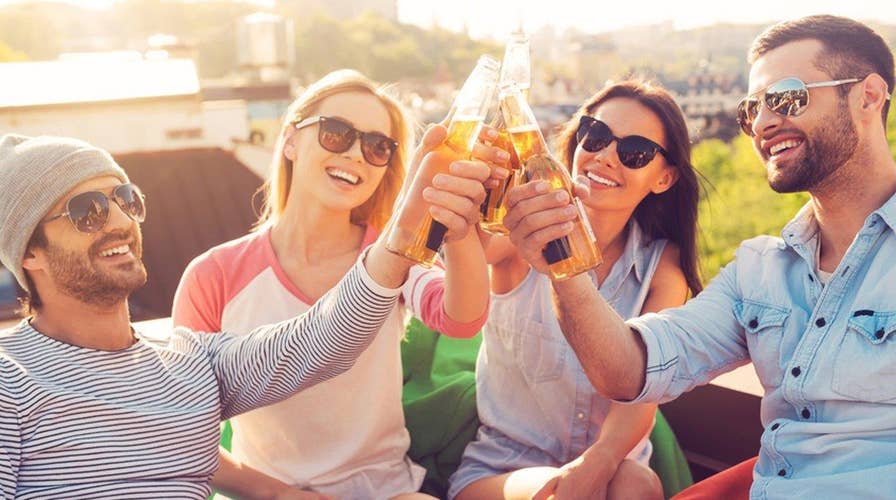Science confirms that beer goggles exist
Fox Foodie: Does beer actually make people more attractive? Panel also weighs in on mashups going too far
Science has proven what many a beer drinker probably already knows – drinking beer makes you nicer and more likely to be attracted to others.
That’s according to a new study conducted by researchers in Switzerland, the BBC reports, where a team from University Hospital in Basel conducted tests with 60 men and women. Researchers had an equal number of both sexes engage in a wide variety of tasks, including face recognition, empathy and sexual arousal tests while drinking either regular beer with alcohol or a non-alcoholic brew.
The study found that those who drank beer with alcohol wanted to be around others and drinking also made people more talkative. The desire to be more social was also more pronounced in women and in those study participants with higher initial inhibitions.
In addition to enabling the participants to recognize happy faces quicker, the alcoholic beer also enhanced participants' emotional empathy, especially with those who began the study with lower levels of the trait.
Photos of sexually explicit content, meanwhile, were also shown to all participants. Those pictures were ranked as “less pleasant” than neutral pictures by participants who had downed the non-alcoholic beer. But they were considered to be more pleasant by those who drank the alcohol. This marked difference was most pronounced in the female participants although researchers found that drinking did not enhance sexual arousal.
Despite previous research that has linked beer consumption with friendlier attitudes, lead researcher Matthias Liechti said that there was actually little precedent for his study. “Although many people drink beer and know its effects through personal experience,” he said, “there is surprisingly little scientific data on its effects on the processing of emotional social information.”
The researchers presented the results at the European College of Neuropsychopharmacology (ECNP) Congress Conference in Vienna, Austria. They will also be published in the journal "Psychopharmacology."
Professor Wim van den Brink, the past chairman of the ECNP scientific program committee, cited the results as intriguing.
"This is an interesting study confirming conventional wisdom that alcohol is a social lubricant and that moderate use of alcohol makes people happier, more social and less inhibited when it comes to sexual engagement,” van den Brink said in a press release.
But why the different results between the sexes? The professor said that could be chalked up to a variety of reasons.
"The sex differences in the findings can either be explained by differences in blood alcohol concentration between males and females with the same alcohol intake, differences in tolerance due to differences in previous levels of alcohol consumption or by socio-cultural factors.”
He also noted that “alcohol-related emotions and cognitions as studied are not always consistent with actual behaviors.” In other words, behaviors exhibited by participants in the study may not be replicated in real world environments.
The study also found that drinking beer had no effect on levels of the hormone oxytocin, a hormone that assists bonding between individuals.

